Chiara Milan, professor at the University of Graz (Austria), published an article in Interface magazine on solidarity with refugees on the Balkan route in the context of a pandemic.
Click here to access the text.

Chiara Milan, professor at the University of Graz (Austria), published an article in Interface magazine on solidarity with refugees on the Balkan route in the context of a pandemic.
Click here to access the text.

In a technical note published by IPEA, Roberto Pires identifies the main effects of preventive measures for the most vulnerable groups and territories. The author states, however, that this is not an assessment of the measures themselves, but rather aims to understand limitations and adverse effects that are consequences of these measures to face the crisis.

Consulting CAUSE Brasil prepared a report composed of themes that, according to the agency, will occupy even more space and importance in life in society, during and after the pandemic. There are 11 themes divided into thematic blocks. The document can be read in full at this link .

The professors and coordinators of the UFMG PRAXIS-EA group, Daniel Medeiros de Freitas and Denise Morado, synthesize and analyze the mobilizations on the outskirts of Belo Horizonte and the quest to demand responses from the state in the face of the pandemic. Find the article here.

The Institute of Applied Economic Research (IPEA) made a technical note about the impacts of the pandemic on civil society organizations, thinking about their challenges and perspectives. The text also points out some alternatives and reflections, in an effort to contextualize based on mappings and descriptions of the organizations' profiles in activities in the country.

The article authored by Penny Andrews (2020), published in Feminist Media Studies, aims to show how the concept of “digital consensus” applies to the current political context, exacerbated by the lockdowns implemented internationally as a way of preventing Covid-19. Access the publication here.
Image: The country
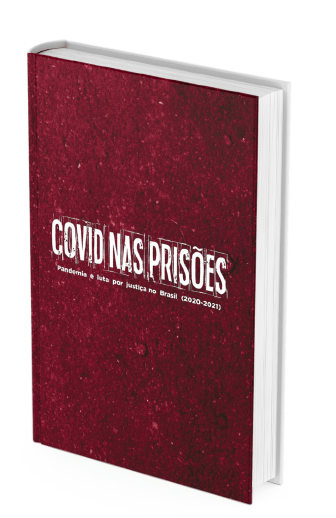
ISER - Institute of Religion Studies has released the first edition of the book "Covid in prisons: Pandemia and Struggle for Justice in Brazil (2020-2021)".
“As a penal abolitionist, looking at this ticking time bomb – which are Brazilian prisons – is already a difficult task, but through the magnified lens present in each text, each report, each testimony, each design of policy to protect people's lives incarcerated, everything took on revealing dimensions of the serious situation of updating the colonial system of revenge that sustains the prisons of Brazil”. (from the preface by Vilma Reis)
The publication brings together texts that portray the unacceptable conditions of the Brazilian prison system, greatly affected by the emergence of the new coronavirus. Made possible through a partnership with the Criminal Justice Network, the book has 32 articles, written by more than 50 authors and authors from different affiliations.
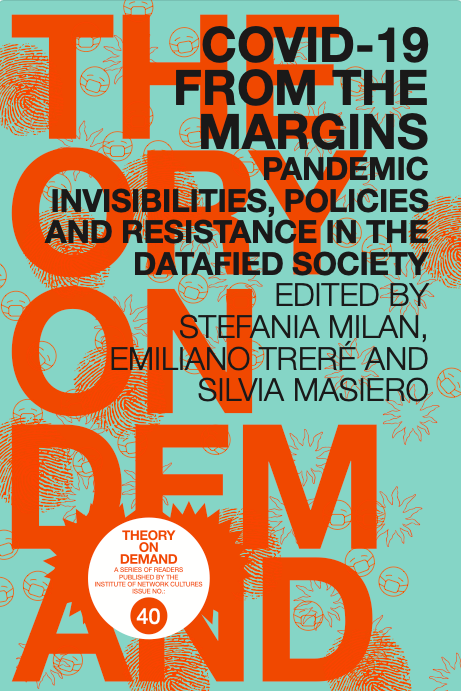
The book “Covid-19 from the margins: pandemic invisibilities, policies and resistance in the datafied society”, organized by Stefania Milan, Emiliano Treré and Silvia Masiero, brings several essays on the pandemic and the use of data in the Global South.

The Alert Movement , made up of several civil society organizations, prepared a study on preventable deaths from the pandemic in Brazil, in collaboration with researchers from several universities. The report was released in June 2021. Access the report here .

Collaborative.lat is a 3-year project that aims to study and build recommendations on governance models implemented by the State and civil society to respond to Covid-19. The project is coordinated by universities and research think tanks. On the project blog, several research reports are available. The most recent deals with the impacts of the pandemic on informal women workers in Bolivia .
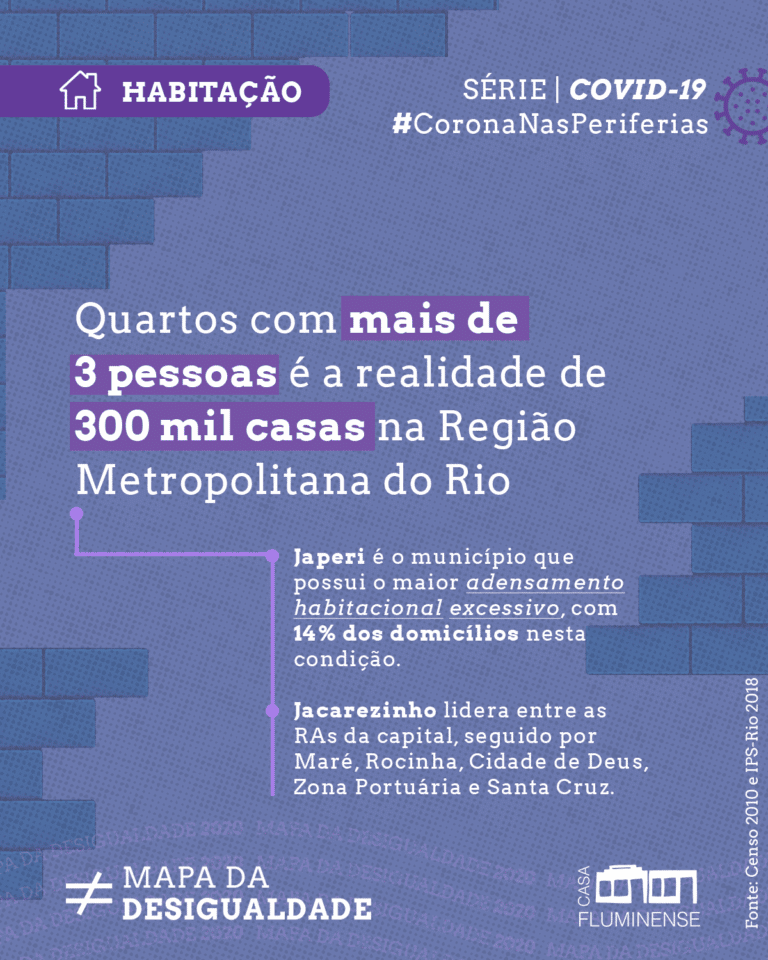
Casa Fluminense , which defines itself as “the hub of a network of people and organizations dedicated to promoting shared actions aimed at promoting equality, deepening democracy and sustainable development in Rio”, began publishing the series Infographics of Inequality . The series is part of the Inequality Map | Metropolitan Region of Rio de Janeiro 2020. The publication will present a set of 40 indicators on the reality of inequalities.
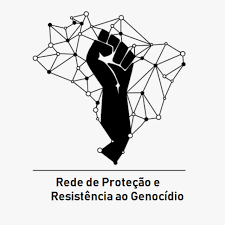
The NGO Coding Rights has prepared a study on 18 new bills, presented since March 11, 2020, that are at the intersection between COVID-19 and technology. Among the topics are: right of access to the network, disinformation, protection of personal data and surveillance. In addition to surveying the projects, the NGO also presents some reactions from civil society. Read here .
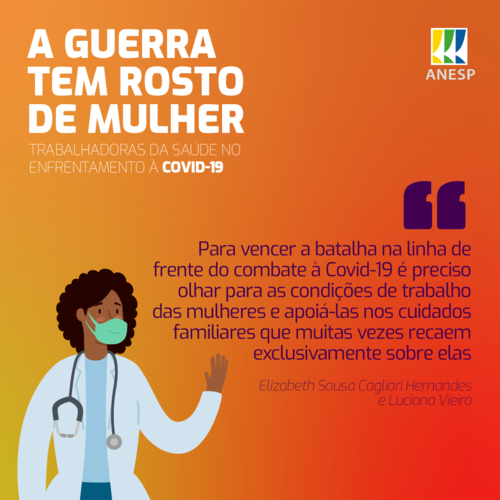
Elizabeth Sousa Cagliari Hernandes and Luciana Vieira published an analysis of the presence of women among health workers, based on bibliographic and quantitative data about the female health workforce in Brazil, and analyzes some of the specific difficulties faced by these women. professionals in the context of the pandemic. “The actions of these women both affect and are affected by the dynamics of coping with Covid-19 in the country, and are strongly influenced by gender determinants”. To access, click here .

Instituto Data Favela does research with favela residents across the country. Between March 20 and 22, it applied a questionnaire with 1,142 participants to find out how people were reacting to the pandemic. Among other things, the survey showed that at that time more than 80% of school-age children were at home. To access the survey, click here .
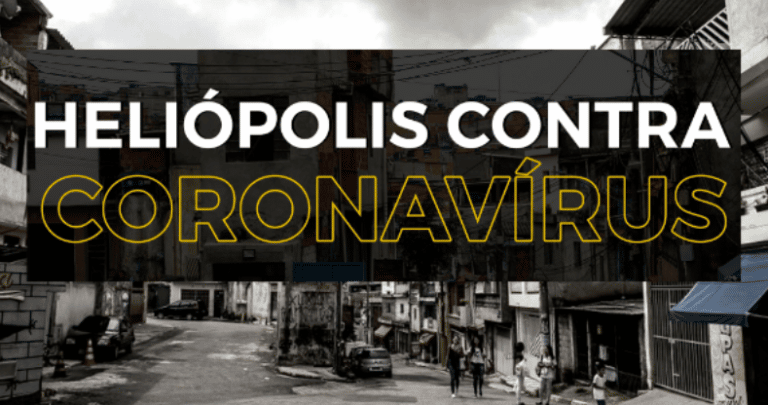
The “De Olho na Quebrada” Project carried out research with residents of Heliópolis (São Paulo) and mapped how social isolation affected the population. According to the survey , carried out between the 27th and 29th of March with 514 participants, 68% declared having had losses in their monthly income.
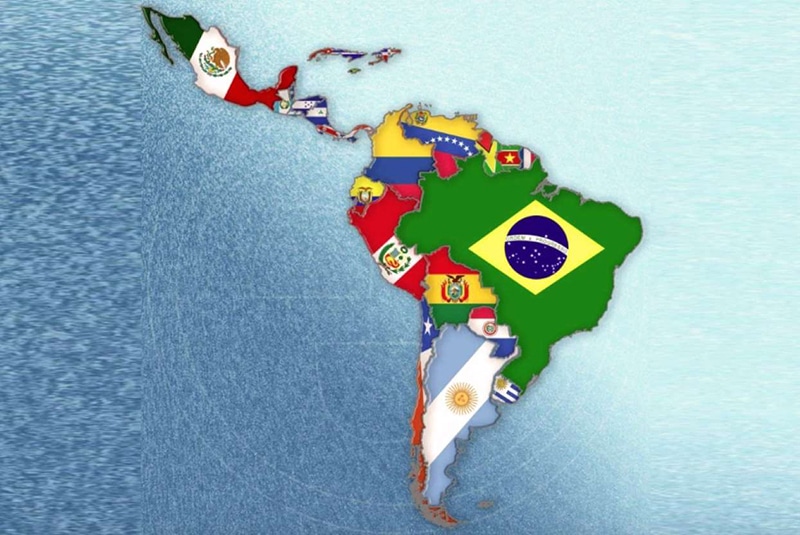

The Electoral Observatory of Latin America (OBLAT) of the Faculty of Social Sciences at the University of Buenos Aires has launched a study on public policies to combat the coronavirus in Latin America. The research is divided into three parts, the first presents a comparison between Argentina and the five countries with which it borders. The second compares it with 6 other Latin American countries. Finally, the third part brings a broader study comparing 19 countries in the region.
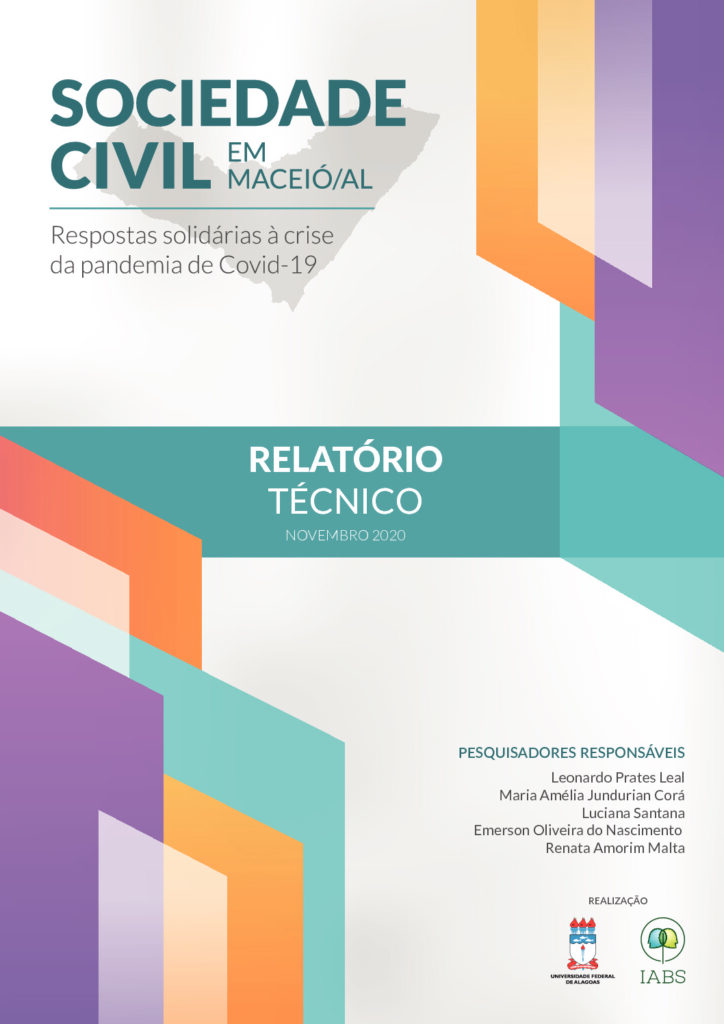

The present report, coordinated by researchers from the Federal University of Alagoas (UFAL), Leonardo Leal, Maria Amélia Corá, Luciana Santana and Emerson do Nascimento, seeks to present, in a synthetic way, the results of a research aimed at understanding the responses of CSOs to the to the crisis of the Covid-19 pandemic, in the city of Maceió/AL. The data presented in the survey were extracted through online interviews with representatives of 100 civil society organizations in Alagoas. The aim was to identify, from the perspective of community leaders, the actions and challenges of local civil society and to evaluate the public policies developed and/or under development aimed at mitigating the social and economic consequences of the Covid-19 pandemic in the city of Maceió/AL. . Access here.
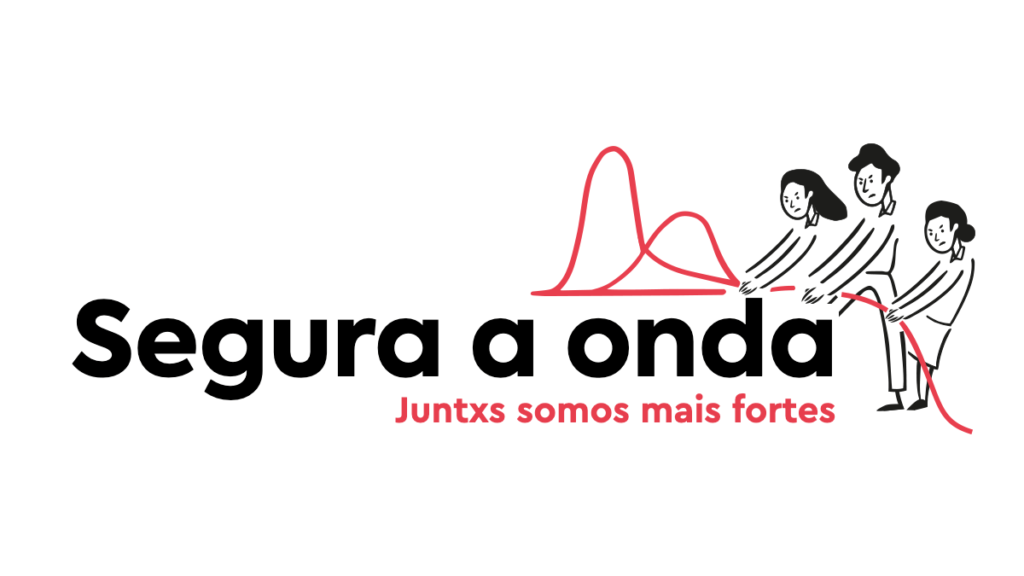
The report seeks to socialize the experience of creating and maintaining the Segura a Onda platform, designed as a repository of relevant and qualified information about citizen initiatives that emerged in the country as a strategy to face the pandemic. Download here .
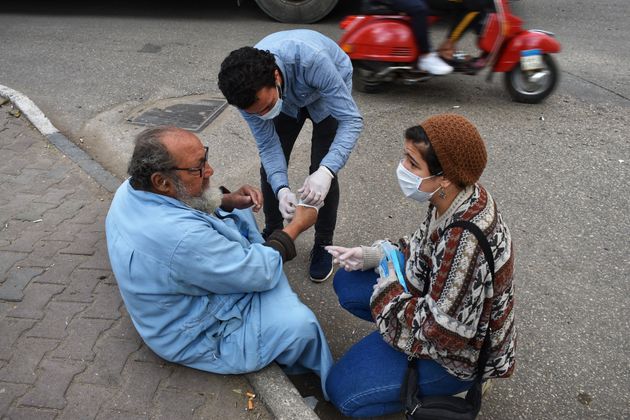
The Political-Institutional Analysis Bulletin n. 25 published by IPEA in February 2021, brings several articles about the pandemic. Camila Escudero , for example, writes about the impacts of the pandemic on civil society organizations. There are also analyzes on the use of technology in the face of the Covid-19 pandemic, making a comparison between Asian countries and Brazil. Other texts analyze public policies and the situation of vulnerable sectors, such as homeless people.
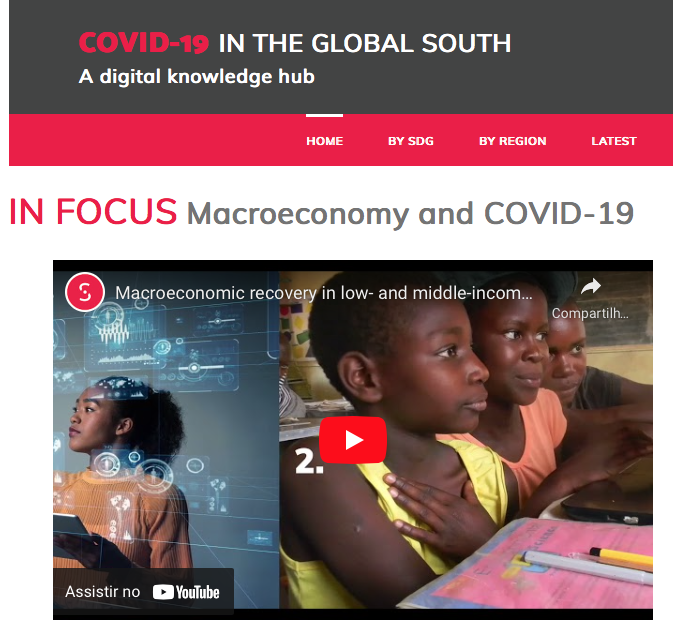
This interactive space compiles research from countries in Africa, Asia and Latin America on the impact the pandemic is having on these regions. The urgency of food security, the dangers of domestic violence, restricted liberties, rising unemployment and the need for formal jobs become evident in the range of articles, research and multimedia presentations that you can find at this pole. Go here .
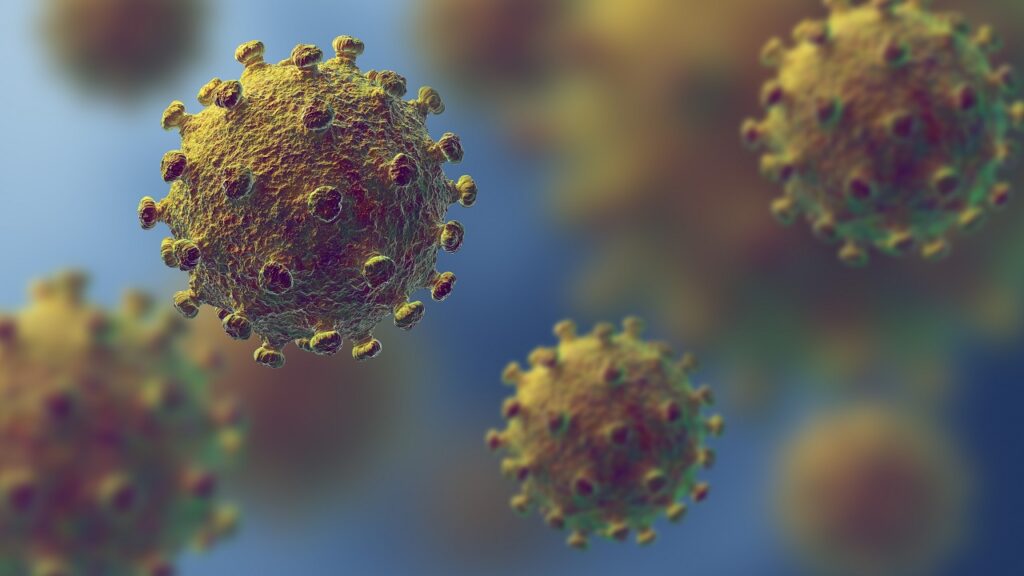
Analysis of more than 25.5 million tweets in 10 days identifies 5,752 accounts that coordinated 6,559 times to spread fake news about the coronavirus for commercial or political purposes. Almost all politically motivated activities were promoted by governments or parties. Access here.

Oxfam is carrying out a project entitled “Emergency Agency in Times of Covid-19”. The research shows the change in the relationship between society and the State during the pandemic and highlights the differences between civil society organizations and the mobilized repertoires. You can download the full report from this link.

The report “Public Manifests in Times of Covid-19”, written by Ana Claudia Teixeira and Adriana Pismel, from the team at the Research Center for Participation, Social Movements and Collective Action (NEPAC/Unicamp), seeks to understand the main agendas, public policies and paradigm shifts that permeated the public manifestos produced in recent months, around covid-19. The set of analyzed texts is available here on the Repository website. And the report can be found here (on the NEPAC website).

The Center for Education and Popular Advice (CEAP-RS) carried out a qualitative study with 23 NGOs and Brazilian social movements, on the responses to the pandemic and the impacts of the pandemic on their performance. The study can be accessed here, on the CEAP page . In addition to the written text, CEAP also produced a series of videos on what they called “A Travessia”, available on its website and on its YouTube channel.

The Regional Center for Studies for the Development of the Information Society (Cetic.br) , of the Information and Coordination Center of Ponto BR (NIC.br), linked to the Brazilian Internet Management Committee (CGI.br), has had a important role in collecting and analyzing data from Internet users in Brazil. More specifically, the ICT COVID-19 Panel aims to collect information about internet use during the pandemic caused by the new coronavirus. See more information and access the data on the CETIC website .
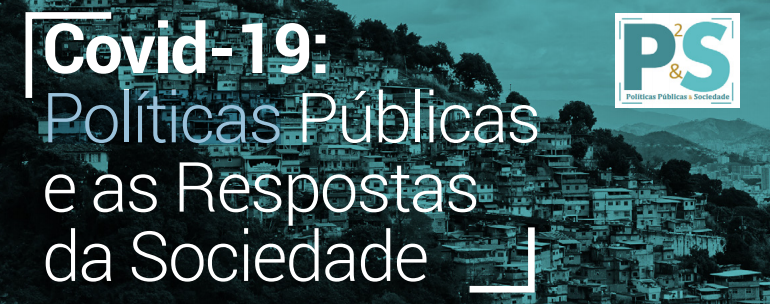
Bulletin 17 the Solidarity Research Network points out that the biggest concerns of peripheral communities in the context of the pandemic are hunger and the persistent violence to which they are exposed. The research carried out interviews with residents, most of whom indicated that the easing of isolation would have a harmful effect on their territories, despite their greater difficulties in complying with it. Half of the local leaders did not trust the government to guarantee the safety of the population.

The Center for Studies in Social Theory and Latin America (NETSAL) created the Observatory of Social Movements of Latin America with the aim of mapping initiatives that seek to respond to the Covid-19 crisis in the region. Download the document here.

Franco, et al. make an assessment of the collective action repertoires mobilized by actors from urban places of informal housing throughout Latin America, the research methodology was a virtual ethnography and spatial analysis of the initiatives, a survey using snowball answered by more than 200 organizations, since the internship beginning of the pandemic until May 30. The research identified seven spheres of informality that may have been the object of the actions of the movements in each territory: housing, health, income, food security, infrastructure, security and political participation. The authors highlight the centrality of having, before the pandemic, some level of local associativism to allow a quick response from civil society. Furthermore, the formation of networks and concentration of organizations that promote collective action in this context has to do with the country's capacity for social mobilization as a whole. Download the document here .
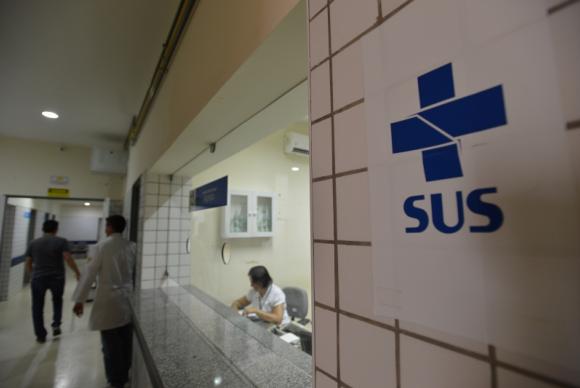
Between April 15th and May 1st, the Bureau of Bureaucracy Studies (NEB FGV-EAESP) conducted an online survey with 1,456 public health professionals in Brazil. The purpose of this research was to understand the perception of these professionals about the impacts of the crisis on their work, well-being and way of acting. The results show, for example, that almost 90% of these professionals say they are afraid of the new coronavirus, a percentage that rises in the case of professionals located in the North of the country. Only 14% of respondents said they felt prepared to deal with the virus and almost 90% said they had not received training to deal with the pandemic. Access the research report here

“In order to meet the demand of Brazilian society, which is currently experiencing moments of serious public health crisis, resulting from the COVID-19 pandemic, the IBGE makes efforts to make public, in a preliminary way , the results mapping of subnormal clusters”. “Subnormal agglomerates” is the terminology used by the IBGE, which includes favelas, subdivisions, villas, etc. This effort is very important, considering that the latest data are from the 2010 Census and are obviously out of date. For example, in 2010 there were 3,224,529 households in these “clusters”; in 2019, the number grew to 5,127,746. The main results can be accessed here . Also see here for access to the research database and documentation. In addition to this initiative, the IBGE created a specific page , in which it brings together the “initiatives carried out and actions under development in relation to its studies and research to support efforts to combat Covid-19”.